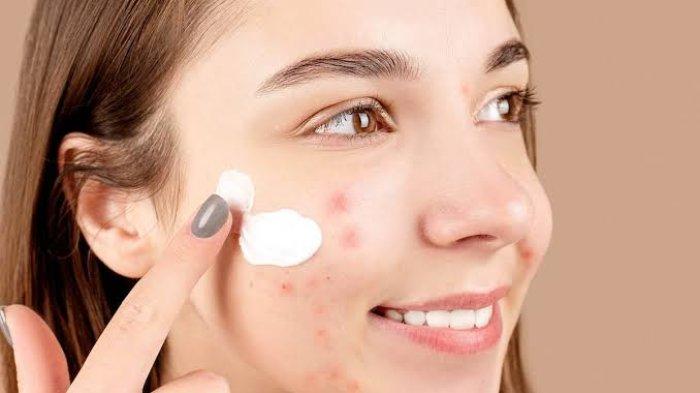Safe Teeth Whitening: What You Need to Know About Sensitive Teeth

Strong 8k brings an ultra-HD IPTV experience to your living room and your pocket.
Teeth whitening has become one of the most popular cosmetic dental treatments, offering a simple solution to brighten your smile and boost your confidence. However, for individuals with sensitive teeth, the idea of Teeth Whitening Dubai can be a daunting one. If you're concerned about how teeth whitening might affect your teeth, particularly if you experience sensitivity, it's important to understand the potential risks and the safest approaches. This guide will walk you through the essential information you need to know about safe teeth whitening for sensitive teeth.
What Causes Tooth Sensitivity?
Before delving into the specifics of teeth whitening for sensitive teeth, it's essential to understand what causes tooth sensitivity in the first place. Sensitive teeth occur when the enamel, the protective outer layer of your teeth, becomes worn down or damaged. This exposes the underlying dentin, which contains microscopic tubules leading to nerve endings. When these nerve endings are stimulated—by hot, cold, sweet, or acidic foods and drinks—the result can be sharp, temporary pain or discomfort.
Several factors can contribute to tooth sensitivity, including:
Worn enamel due to brushing too hard, grinding teeth, or consuming acidic foods and drinks
Gum recession, which exposes the roots of teeth
Cavities or cracks in the teeth that allow stimuli to reach the nerves
Recent dental treatments, such as fillings, crowns, or professional cleanings
For individuals with sensitive teeth, teeth whitening can sometimes aggravate this condition, causing discomfort during or after the procedure. However, with the right approach, it is possible to whiten your teeth safely and effectively.
How Teeth Whitening Works:
Teeth whitening treatments generally work by using bleaching agents, typically hydrogen peroxide or carbamide peroxide, to break down stains and discoloration on the enamel. These bleaching agents penetrate the enamel and lighten the stained or discolored molecules, giving the teeth a brighter appearance.
While effective, these bleaching agents can sometimes cause irritation to sensitive teeth by temporarily weakening the enamel or irritating the nerve endings in the dentin. This can lead to an increase in tooth sensitivity, particularly if the whitening process is not done carefully or with appropriate products.
Safe Teeth Whitening Options for Sensitive Teeth:
Fortunately, there are several safe teeth whitening options available for individuals with sensitive teeth. By choosing the right products and following best practices, you can achieve a brighter smile without compromising your comfort.
Consult a Dentist Before Whitening:
If you have sensitive teeth, the first step before undergoing any teeth whitening treatment is to consult your dentist. A dentist will be able to assess the condition of your teeth and recommend a whitening approach that minimizes the risk of discomfort or damage. They may also identify any underlying issues, such as cavities or gum disease, that could be contributing to your sensitivity and address them before starting whitening.
Use Desensitizing Toothpaste:
Many brands of toothpaste are formulated specifically for sensitive teeth. These toothpastes contain ingredients that help block pain signals from reaching the nerves, providing relief from tooth sensitivity. Using a desensitizing toothpaste for a few weeks before and after your whitening treatment can help reduce the likelihood of experiencing discomfort.
Choose a Gentle Whitening Method:
Not all whitening methods are created equal, and some can be harsher on sensitive teeth than others. There are two main categories of teeth whitening: professional treatments performed by a dentist and over-the-counter (OTC) products.
Professional Whitening Treatments: Dentists often use stronger whitening agents than those found in OTC products, but they can also tailor the treatment to your needs. Professional treatments may include custom-fitted trays, laser whitening, or in-office whitening procedures. Your dentist will apply a protective barrier to your gums and may offer additional desensitizing treatments to reduce any discomfort.
OTC Whitening Products: There are numerous OTC whitening products available, such as whitening strips, gels, or toothpastes. If you're opting for an at-home treatment, choose a product specifically designed for sensitive teeth. Look for products that contain lower concentrations of peroxide and have added ingredients, like potassium nitrate, that can help alleviate sensitivity.
Avoid Overusing Whitening Products:
While it can be tempting to use teeth whitening products frequently to achieve faster results, overusing these products can lead to increased tooth sensitivity. Excessive whitening can wear down enamel and irritate nerve endings, exacerbating sensitivity issues.
To avoid this, stick to the recommended usage instructions provided with your whitening product. If you're using an at-home treatment, consider spacing out your sessions to give your teeth time to recover between treatments.
Consider Natural Teeth Whitening Alternatives:
If you're concerned about sensitivity but still want to brighten your smile, there are natural alternatives to chemical whitening treatments. While these methods may not provide dramatic results like professional treatments, they can help remove surface stains without causing irritation.
Baking Soda and Hydrogen Peroxide: A mild paste made from baking soda and hydrogen peroxide can be used to gently scrub away stains from the teeth. The abrasiveness of baking soda helps remove surface plaque, while hydrogen peroxide works as a mild bleaching agent. Be cautious with this method, as overuse can cause enamel erosion.
Activated Charcoal: Some people use activated charcoal as a natural teeth whitener. It works by binding to and removing surface stains. However, it's important to use this method sparingly, as charcoal can be abrasive if used too frequently.
Follow Up with a Desensitizing Treatment:
After your teeth whitening treatment, it's a good idea to follow up with a desensitizing treatment to soothe your teeth and gums. Dentists often recommend fluoride treatments or specially formulated desensitizing gels that can help reduce sensitivity. These treatments help to re-mineralize the enamel and alleviate discomfort, allowing you to enjoy the results of your whitening without ongoing pain.
Conclusion:
Teeth Whitening in Dubai is a safe and effective way to brighten your smile, but if you have sensitive teeth, it's essential to approach the process with caution. By consulting a dentist, choosing gentle whitening options, and following the best practices for managing sensitivity, you can achieve a beautiful, bright smile without discomfort.
Remember, the key to safe teeth whitening is not just the products you use, but how you use them. Taking the time to select the right whitening method and being mindful of your teeth’s sensitivity will help ensure you achieve your desired results while maintaining optimal oral health.
Note: IndiBlogHub features both user-submitted and editorial content. We do not verify third-party contributions. Read our Disclaimer and Privacy Policyfor details.







